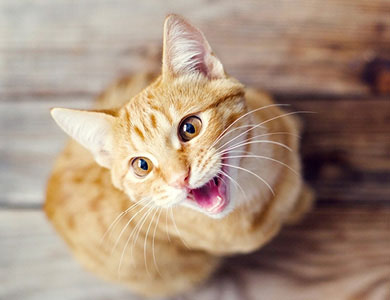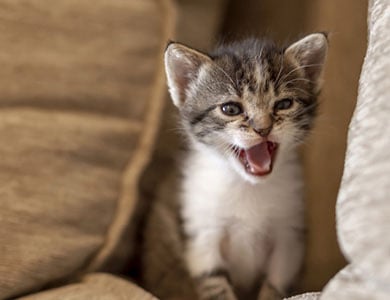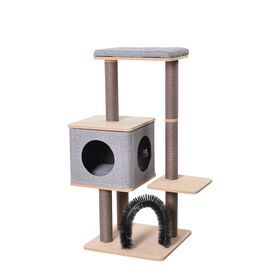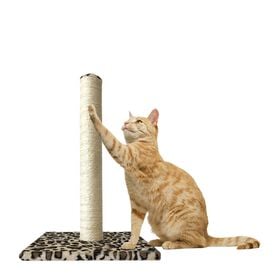Cats meow. It’s what they do. They do it to acquire something. They do it to express satisfaction and discontentment. If only there were a tool we could use to translate our cats’ language into our own! If you go online, you’ll find a number of tools that already purport to do so. Whether or not they really can is the question. In the meantime, why not save your money for more useful things for your cat, while I explain what’s really behind your cat’s meows. You’ll be surprised to find you’ve already got all the translation tools you’ll ever need.
 Cats have a unique language they use to communicate with humans
Cats have a unique language they use to communicate with humans
Did you know cats can meow an estimated 50-100 different ways? And get this: humans are only capable of deciphering 5-15 of them! Want to know something shocking? Cats only use their meow when interacting with humans! Of course, there are plenty of other sounds cats use, but the clean-cut meow was invented exclusively for use with humans. It’s purely a result of domestication!
Nonetheless, is it possible that we’ll one day have a dictionary specifically for translating between English and Meowish? Studies show that, while global trends indicate an understanding of meowing, this almighty dictionary will probably fall short in explaining whether meowing is positive or negative thing based on whether it begins with a deep tone and ends on a high-pitched tone, or vice-versa.
Your cat makes different sounds according to your reactions
I’ve heard it said many times before that this statement is false: your cat is perfectly capable of making him/herself understood. Clearly this means your cat is speaking to you, correct? Not exactly: Cats don’t string a series of meows into sentences, but they will make certain sounds according to your reactions. The beauty of this is that, in reality, unbeknownst to you, you and your cat share a dictionary that is entirely your own.
It’s not unlike meeting a foreign person. At first, we’ll use words we both know, while accentuating intonation in order to signify a question, an affirmation, an expression of satisfaction, or disagreement. Then, by trial and error, we manage to understand that a word (or a sound, in your cat’s case) signifies something particular. Taking this route, we create a short-term language associated with gestures. The same applies when it comes to cats: the latter will use their meow combined with a precise body language to communicate. If he or she is successful, they will repeat the same in order to get what they want.
Next, your other cats will undergo the phenomenon of social facilitation. What this means is that your cats will quickly understand that expressing themselves in a similar way will always get them what they want. This is when a dictionary of sorts starts to take shape, to be shared amongst all the cats in your home. However, this “dictionary” is only for use in your home — every household has its own language. Hence why we’ll likely never have a universal dictionary for deciphering meowing.

What about the infamous “nocturnal” meowing?
If it’s true that your cat meows in order to get you to understand something, then why do they insist on doing it at 3am, while you’re sound asleep? The reason is simple: Because it works. In the vast majority of cases, nocturnal meowing can be involuntarily reinforced by pet owners. Most people don’t realize until it’s too late that getting out of bed in an attempt to silence your pet, and then giving them food or a few rubs, or letting them outside, will work in the opposite way you want. This will simply encourage them to continue the same behaviour every night. After all, it works, right?
Many of us are unaware that yelling at your cat, telling them to shut up, running after them in the house, closing them off in a room or letting them outside all reinforce their behaviour since, in each scenario, you’re showing them attention. Whether positive or negative, attention is usually what your cat is after.
Your cat meows in order to get your attention
Many of the owners who have tried to ignore their cats do no avail. Often, this results in more intense meowing. The explanation for this is simple: Imagine a child saying “Mommy! Mommy!” while tugging on your arm to get your attention while you’re mid conversation, not wanting to be interrupted. After a while, your child is going to scream “MOMMMMM!!!!” with much more force and intensity, in a way that is impossible for the mother to ignore. This is exactly the trick cats use. This is known as extinction burst. If you’re having trouble responding to a certain level of intensity, all you’re doing is showing your pet that you’ll need to be addressed at a more urgent and intense level before you’ll respond.
There is an efficient method for stopping your cat from meowing at night: Using a feline behavioural specialist, such as the Cat Educator! This method should be adapted to your environment, to the temperament of your cat and your family. But employed properly, it works in 99% of cases. No more losing sleep!
You and your cat share a unique language
Meowing is still largely a point of mystery for us humans. Nonetheless, there is a unique language between you and your cat. By paying attention to it, you’ll understand your cat better than you could have ever imagined!








